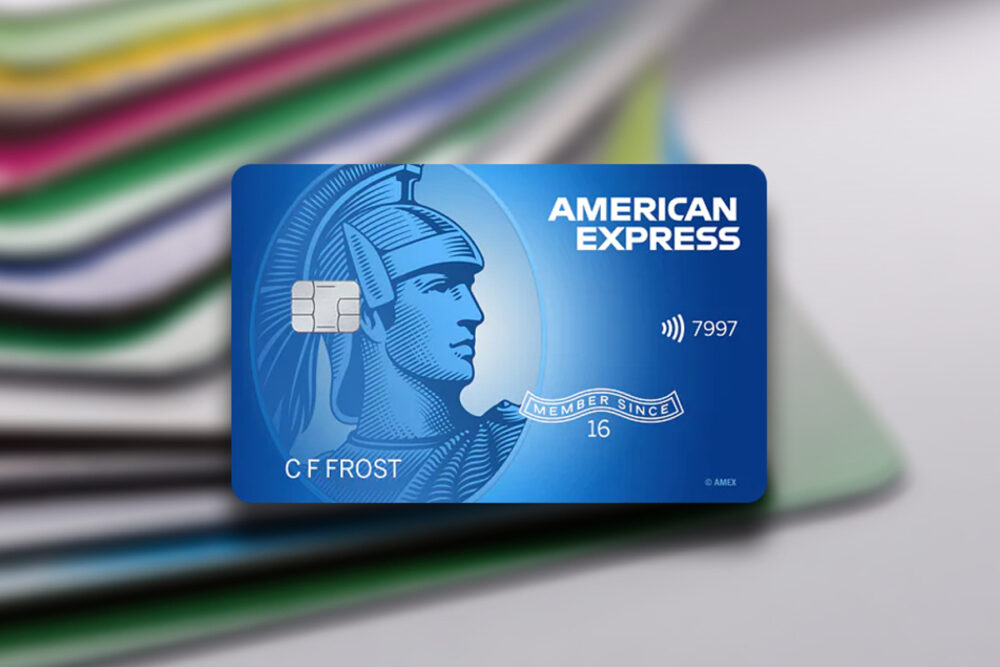Understanding Consumer Rights Regarding Credit Cards

Empower Yourself with Knowledge
Every time you swipe your credit card, you enter a world filled with responsibilities and rights. Understanding your consumer rights is essential. This knowledge not only empowers you to make informed financial decisions but also safeguards your interests as a consumer. In today’s fast-paced world, being financially literate can set you on the path to greater security and confidence.
Credit cards offer incredible convenience, from quick payments at your favorite stores to emergency funds during unexpected situations. However, they come with potential pitfalls, including high-interest rates and hidden fees. Awareness of your rights can shield you from these issues, allowing you to use credit wisely and responsibly. Here are some critical rights you should be aware of:
- Fair Billing Practices: As a cardholder, you have the right to dispute incorrect charges. If you believe a transaction is erroneous or fraudulent, you can challenge it and request a correction. For instance, if you are charged for a service that you didn’t receive or for a duplicate bill, your rights allow you to escalate the issue until it is resolved.
- Timely Disclosure: Credit card issuers must provide you with necessary information about key terms and any changes. This includes notifying you of interest rate increases or changes in terms of service. Understanding these details is crucial; having this information enables you to make informed choices about your credit utilization and payments, ultimately affecting your credit score.
- Protection from Fraud: In cases of unauthorized transactions, most credit cards protect you from significant losses. Typically, if you report the fraud promptly, you could be liable for only a small portion of the charge, often as low as $50, depending on the laws in your state. This means that even if you face a theft situation, your responsibility is limited, allowing you to focus on reclaiming your peace of mind.
Knowing and exercising your rights can significantly impact your financial peace. By standing firm against unfair practices and fraud, you not only protect your finances but also contribute to a fairer marketplace overall. Educating yourself allows you to build a healthier, more sustainable credit profile, fostering a relationship with credit that promotes growth rather than debt.
Use this knowledge to navigate the world of credit cards with confidence! When you understand your rights, you are better equipped to manage your finances wisely. Empower yourself today, not just for yourself but for those around you who may look to you as a resource for guidance in their financial journeys.
DISCOVER MORE: Click here to unlock the secrets to planning your first successful business
Your Rights as a Cardholder: A Safety Net
As a consumer in the United States, being a credit cardholder comes with an array of rights designed to protect you in various scenarios. Understanding these rights is not just advisable; it’s essential for anyone looking to navigate the complexities of credit responsibly. Many consumers are unaware of the full extent of their rights and may feel overwhelmed when faced with billing disputes, unexpected fees, or even fraud. Knowledge is your best ally in these situations, and it can empower you to manage your financial landscape effectively.
One of the cornerstones of your rights as a cardholder is the ability to dispute charges. If you notice a charge on your statement that doesn’t seem right, you have the legal right to challenge it. This could be due to a mistake, such as double billing, or a transaction that you never authorized. Taking action quickly is vital, so report such discrepancies to your card issuer and initiate a dispute. By doing this, you not only protect your finances but also ensure that your spending reflects your true purchasing decisions.
Transparency is Key
Another right that benefits you tremendously is timely disclosure regarding your account. Credit card issuers are required by law to clearly inform you of any changes to the terms and conditions associated with your account, including alterations in fees or interest rates. Awareness of these changes allows you to adapt your financial strategy as needed. By keeping track of your credit terms, you are better positioned to make informed decisions about your spending, which can, in turn, help maintain or improve your credit score.
Furthermore, many people overlook the significance of protective measures against fraud. If your credit card is lost or stolen, or if unauthorized transactions occur, you have substantial protection under federal law. In most cases, your liability for fraudulent charges is limited to just $50, provided you report the misuse in a timely manner. Having this safety net can alleviate fears about credit card fraud and encourage you to use your credit card with confidence. Remember, your responsibility decreases significantly once you report the fraudulent activity, allowing you to focus on regaining your peace of mind.
Building Your Financial Knowledge
In summary, knowing your rights as a credit cardholder isn’t merely advantageous; it’s essential in fostering a more stable financial future. When armed with the right information, you can confront unfair practices confidently and protect your financial well-being. Consider taking proactive steps—such as reading your credit card agreements and monitoring your statements regularly—so you can maximize your rights and opportunities as a consumer. Every informed decision you make contributes to a stronger financial foundation, fostering a relationship with credit that empowers you now and in the future.
DISCOVER MORE: Click here to dive deeper
Empowerment Through Knowledge: Navigating Credit Card Terms
As you delve deeper into understanding your rights as a credit cardholder, it’s crucial to recognize how the clarity of terms and responsible usage can profoundly affect your financial stability. Many consumers often find themselves navigating through jargon-laden agreements that seem daunting and complex. However, breaking these terms down can reveal essential insights into managing your credit effectively.
Your Right to Fair Lending Practices
One fundamental right under the Equal Credit Opportunity Act is the assurance that you will not face discrimination based on race, color, religion, national origin, sex, marital status, or age when applying for a credit card. This legislation safeguards you from unfair prejudices, upholding the principle that everyone deserves equitable access to credit. If you ever feel that your application was unfairly judged, you can report these practices to the Consumer Financial Protection Bureau (CFPB) for investigation. This not only protects your rights but also promotes a more level playing field for all consumers.
The Importance of Annual Percentage Rate (APR) Disclosure
Another aspect that deserves your attention is the Annual Percentage Rate (APR) of your credit card—essentially the cost of borrowing expressed as a yearly interest rate. Credit card companies are mandated to inform you of the APR along with any promotional rates. Not only does this empower you to compare credit card offers easily, but it also enables you to understand the long-term implications of your borrowing decisions. Whether you plan to pay off your balance in full or carry it over from month to month, being aware of the APR helps you make more informed financial choices.
Fee Awareness: Your Shield Against Surprise Charges
Many cardholders face unwelcome surprises in the form of hidden fees or unexpected charges. Understanding your right to clear disclosures regarding fees before you accept a credit card is vital. Credit card issuers must outline all applicable fees, such as late payment fees, annual fees, and foreign transaction fees. Familiarize yourself with these details to avoid unnecessary financial pitfalls. A proactive approach means you can choose a card that aligns with your usage patterns and saves you money in the long run.
Your Right to Access Information
You have the right to access information related to your credit card account—this extends to statements, account balances, and payment history. Taking the initiative to regularly review this information can serve as a protective measure against identity theft and fraud. It aids you in spotting potential errors or inconsistencies before they escalate into more significant issues. By making it a habit to scrutinize your monthly statements and account activity, you cultivate a relationship with your credit that emphasizes vigilance and accountability.
Remember, being a responsible consumer goes beyond simply knowing your rights; it necessitates a commitment to staying informed and proactive. Each time you take a moment to educate yourself about your credit card terms or review your statements, you are reinforcing your financial independence. Let knowledge guide your journey to not just owning credit, but mastering it, paving the way for a secure financial future with confidence and resilience.
DIVE DEEPER: Click here to learn how to create a digital marketing strategy from scratch
Conclusion: Embracing Your Rights for a Brighter Financial Future
In the complex world of credit cards, understanding your rights is not just a matter of financial literacy; it is a pathway to empowerment. Every consumer has the guaranteed right to equitable lending practices, ensuring that your personal circumstances do not unfairly limit your access to credit. Awareness of terms such as the Annual Percentage Rate (APR) and the significance of fee disclosures arms you with the ability to make informed decisions that safeguard your financial health.
Moreover, by exercising your right to access account information, you play an active role in monitoring your financial status and protecting yourself from potential fraud or errors. This diligence fosters a relationship with your credit that is proactive, informed, and ultimately rewarding. In a landscape where surprise fees and misleading terms can easily ensnare unsuspecting consumers, knowing your rights serves as your shield.
Ultimately, embracing your rights isn’t merely about compliance; it embodies a mindset of financial responsibility and independence. Commit to ongoing education and regular engagement with your credit accounts, and you will cultivate a healthy, sustainable financial future. Each proactive decision you make, rooted in the knowledge of your rights, brings you one step closer to not just surviving in the world of credit, but thriving within it. Stand firm in your rights, educate yourself, and step confidently into your financial journey—empowerment is truly yours for the taking.



